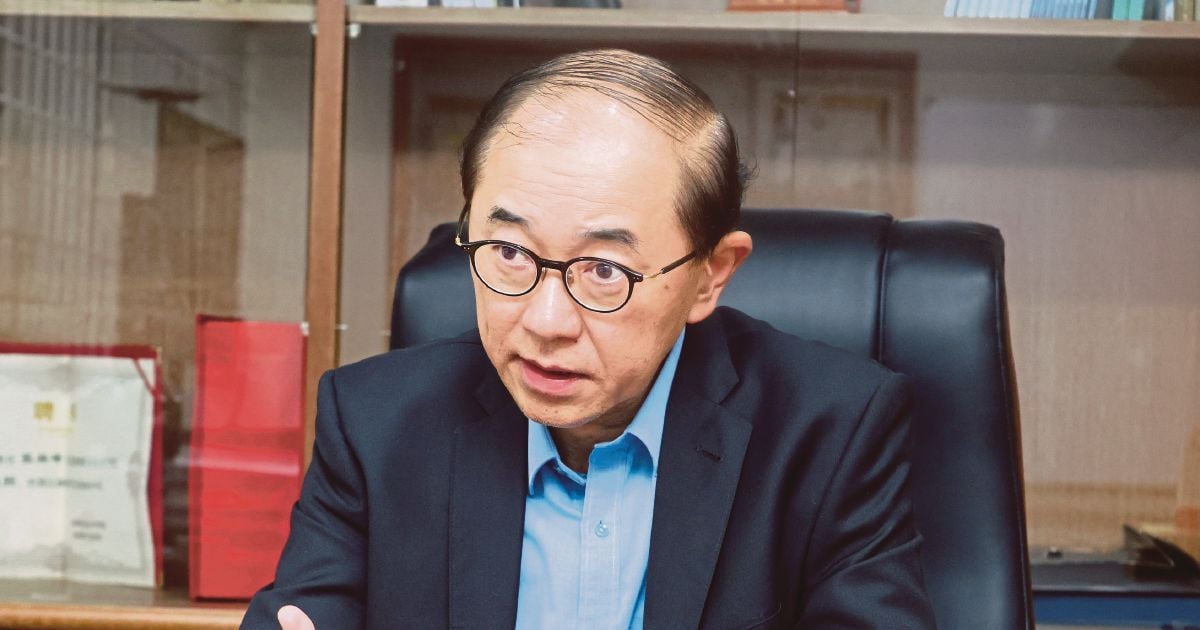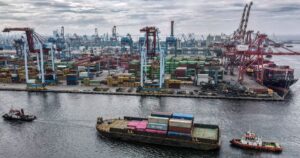KUALA LUMPUR: MCA finds itself at a crossroads as calls grow among the party grassroots for a reevaluation of its position in Barisan Nasional.
With limited involvement in policymaking, the party is now navigating concerns over BN‘s direction, especially in light of Umno‘s growing ties with DAP. MCA deputy president Datuk Dr Mah Hang Soon discusses the party’s lack of influence in the unity government, future strategies and the challenges it faces ahead of the 16th General Election.
Q: As a BN component party, what role does MCA play in the unity government?
A: While MCA is not directly involved in policymaking, the party still serves as the voice of the people and that is exactly what a political party is meant to do. Our role is to ensure policies proposed by the government are carefully evaluated to ensure they truly benefit the people.
When there are flaws in policies, it is our duty to bring them to the attention of the executive and the government to prevent negative impact on livelihoods. That is what MCA has been doing. Our president, Datuk Seri Dr Wee Ka Siong, and other leaders have consistently spoken out. We have made sure our voices are heard. In some cases, we influenced the government to reverse or review policies.
Q: As MCA isn’t directly involved in policymaking, how do you view the party’s influence in the unity government?
A: Remember the Education Ministry’s abrupt decision to revise the matriculation entry requirements? The change excluded students who scored an “A-” in their Sijil Pelajaran Malaysia results from being considered, accepting only those with “A+” and “A” grades, despite the government previously announcing otherwise.
After pressure from us and others, the decision was reversed. The same goes for the issue of subsidised liquefied petroleum gas (LPG) for food operators, which MCA also highlighted. The cabinet agreed to allow food operators to continue using subsidised LPG cylinders without a Scheduled Controlled Goods Permit until October, pending amendments to the Control of Supplies (Amendment) Regulations 2021.
This is our contribution. Even though we are not directly involved in policymaking, we strive to ensure policies are fair and accepted by the people. Inadequacies must be corrected and that’s the point of being a political party — to speak up for the people.
Q: There have been increasing calls for MCA to clarify its position in BN. How does the party respond to this?
A: MCA has been part of BN for decades. We have stood by our partners through challenges and have consistently played a loyal and constructive role in the coalition. Over the years, we have worked closely and effectively with component parties and MCA’s role has been well received by Malaysia’s multi-racial communities.
This is not a trivial matter. Any decision on our position must be carefully considered in the best interest of the party and the people we represent.
Q: Looking ahead, what is MCA’s strategic direction? Will MCA stay in BN? Is it open to exploring new political alignments in response to the changing political landscape?
A: I know you won’t let me go without addressing this matter. There is growing resistance among the grassroots over what they perceive as increasingly close ties between Umno and DAP. This raises concerns about MCA’s current direction and its role in BN.
Although MCA has long been a key partner of Umno in BN, alongside MIC, I have to admit that recent political developments have caused a noticeable shift in sentiment at the grassroots level. As someone who engages closely with the grassroots, I can strongly feel that many are not fully on board with the idea of Umno and DAP working together.
In Perak, a majority of MCA divisions have expressed reservations about working with DAP. A recent visit by 30 DAP members of parliament to Umno’s headquarters at Menara Dato Onn, an initiative within their rights, was met with mixed reactions, mostly dissatisfaction among MCA grassroots, as well as some within DAP and Umno.
Q: Considering Umno’s close ties with DAP, is MCA still committed to staying in BN?
A: If Umno chooses to collaborate with DAP, a question arises: where does that leave MCA, especially when grassroots sentiment is against such cooperation? These views cannot be ignored. Considering all the scenarios involving Umno and DAP, I want to make it clear that we, like Umno, have the right to explore the possibility of collaborating with anyone.
That’s what being a political party is about, right? Just as Umno can decide to work with DAP, can we stop them? The same principle applies to us.
Q: What are MCA’s concerns heading into the 16th General Election, particularly regarding seat allocations?
A: There is growing concern that if the approach continues, where incumbents are prioritised, MCA may be left with limited representation, just two parliamentary and seven state seats, which we have now.
In the last six state elections, the lack of seat allocations for MCA caused considerable dissatisfaction among members. We put in a lot of preparation, but no extra seats were given. Understandably, this led to disappointment, with some questioning how many seats we will contest in the coming general election.
© New Straits Times Press (M) Bhd






